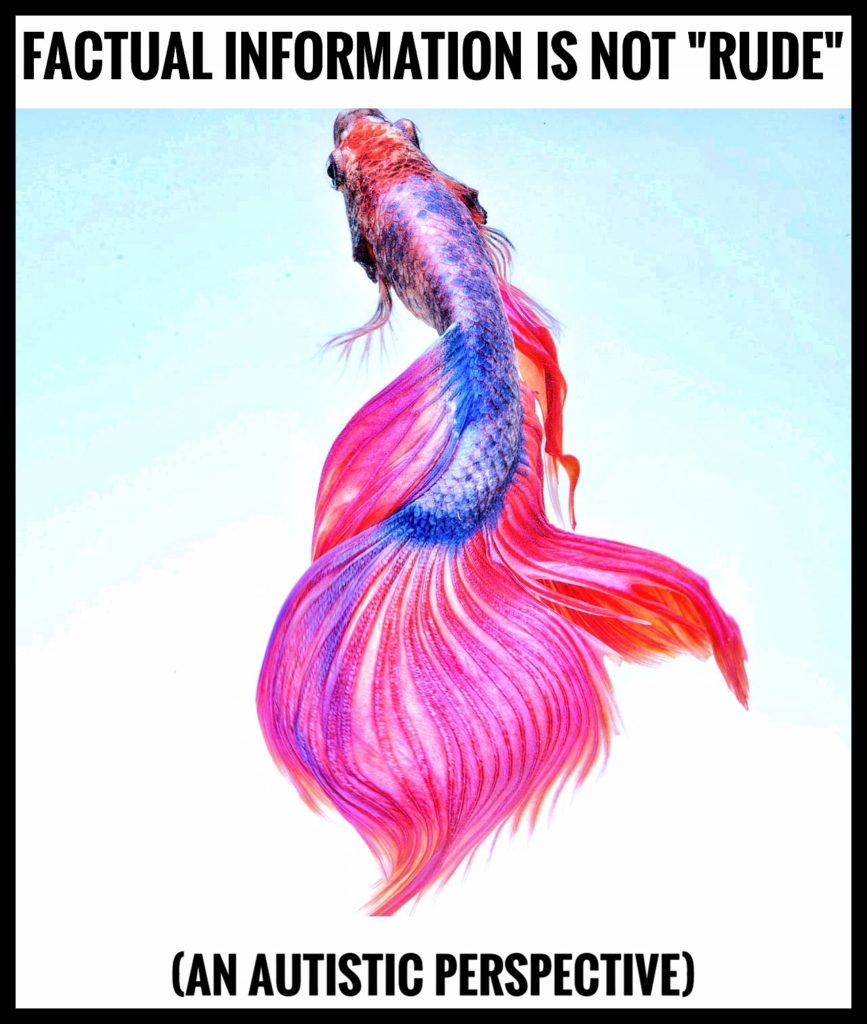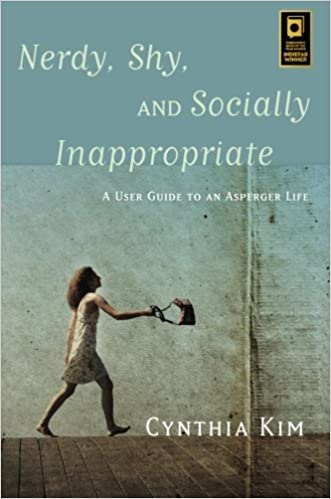Factual Information Is Not “Rude” – An Autistic Perspective

The other day, I was scrolling through Instagram and saw a pretty lip gloss container in the shape of a mermaid tail, but the person who wrote the caption called it a unicorn container. I pointed it out by saying, “You mean mermaid containers?” Somebody immediately commented, “No need to be rude.” Meanwhile, the people running the page said they fixed the error.
Not necessarily a big deal, but the brief interaction reminded me of all the times I was called “rude” for pointing out factual information much in the same manner that I did on the Instagram post. My intention was to call out the error gently and help them save face with potential customers before the post was up for too long. (I know if I’d made a mistake like that, I’d be grateful for the correction!)
Also, the OP didn’t seem to mind, either. So, why is it that such a large majority of neurotypical society sees factual information as rude and not to be discussed even if it’s helpful to the other person or saves them further embarrassment?
Why is it that most people will avoid telling their friend that they have spinach in their teeth so they don’t “embarrass” them, yet let them walk around like that all day smiling confidently until they finally look in a mirror and realize the truth?
Why is it more socially acceptable to allow a person to spend the day with a dryer sheet attached to the back of their pant leg than to point it out?
Why is it considered inappropriate to point out that your boss has made a glaring grammatical error on an email she has yet to send out?
I’m not even talking about being blunt and honest about how someone looks or sounds or smells, either. I’m talking about factual errors and flubs that are completely fixable within a matter of moments!
I don’t see factual information as rude. I never have. It’s. Factual. Information. It’s the truth. I can’t understand how that could hurt someone.
Chances are, your autistic loved one may be just as confused as I am about why it’s considered inappropriate to point out the truth right in front of them. I know I’ve been yelled at and come down on “all of a sudden” for pointing out the truth of a situation, and it’s a major part of why I have PTSD.
To others, I was rude and malicious and knew full-well what I was doing. To me, I was just making conversation and trying to fit in, and, suddenly, everybody was angry and attacking me.
It never made any sense. It still doesn’t now, and I’m in my 40s!
Oh, and before you say, “It’s not what you say, it’s how you say it”, in my experience, that doesn’t work. It doesn’t matter how kindly I phrase something or what tone I mask my voice into, there are certain truths that, for some reason, are never meant to be spoken aloud in neurotypical society (even though every single neurotypical person in the room is secretly but fully aware of what’s going on).
This is a part of the neurotypical experience that I do believe will always remain a mystery to me. If you’re neurotypical, and you have an autistic loved one, you may have been offended by them pointing out factual information in a rather blunt and direct way in the past.
To you, it’s rude. To us, it’s just a fact. There’s no intent to harm, embarrass, call out, or demean. Most of the time, we’re actually trying to be helpful!
Please keep that in mind the next time your autistic loved one points out factual information. Before you react, take the time to sit with your feelings and discover where they are coming from and how they are affecting you.
Is there a knot in your stomach? Did your heart just clench? Do you feel like you got cold water splashed in your face? If so, do you know the source of these feelings? Are you embarrassed? Ashamed? Guilty? Do you feel called out? Is there a secret you’re keeping from yourself?
I know it’s not comfortable, but it’s just how our brains are wired.
We don’t understand your aversion to factual information any more than you understand how we can just blurt out the unflinching truth.
We’re just different, and neither one of us is trying to attack the other. Keeping that in mind will help reduce misunderstandings and knee-jerk emotional reactions that may send your autistic loved one fleeing from the room in a meltdown brought on by confused terror.
Books for Better Understanding the Autistic Brain
(Whether you’re an autistic person who is newly diagnosed, or you have a loved one on the spectrum, the books below can help you better understand the autistic brain.)
Want downloadable, PDF-format copies of these blog posts to print and use with your loved ones or small class? Click here to become a Patreon supporter!







1 Response
[…] Factual Information Is Not “Rude” – An Autistic Perspective […]